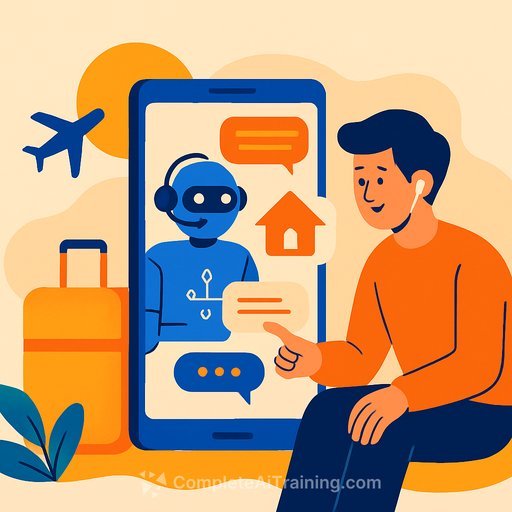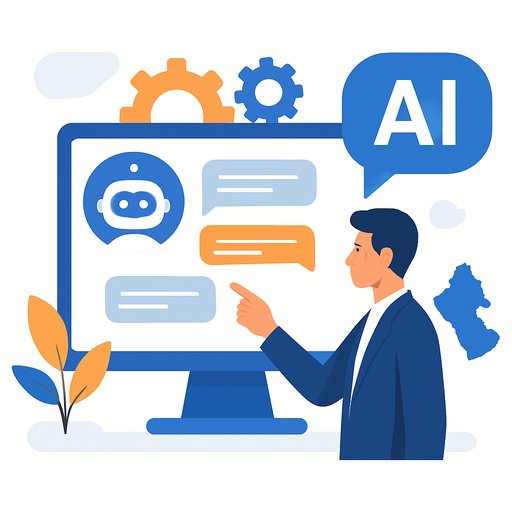HTS Assist: What Customer Support Leaders Need to Know
Hopper has launched HTS Assist, a virtual service portal airlines and travel providers can deploy for booking, rebooking, canceling, and answering customer questions by text or voice. In a live demo, an agent canceled a flight, booked a car, and got airport transfer advice in five minutes.
According to CEO Frederic Lalonde, the system resolves issues four times faster than human agents, matches an 88% CSAT in tests, and cuts cost per call by 92% to US$1.12. It's built to handle surge volume during disruptions, pick up on caller cues, and upsell where appropriate.
Why this matters
This is agentic AI in production-software that can make decisions, reach into booking systems, recall context, and adapt to changing conditions. Booking.com is working on a personalized version too, which signals where support is heading in travel.
If you manage support, this points to a new model: bots take high-intent, policy-bound work at scale; humans focus on complex exceptions, empathy, and recovery.
How Hopper tries to avoid common AI failures
- Specialized model architecture trained on 14 million customer interactions in multiple languages.
- Responses limited to verified facts and policies rather than freeform improvisation.
- Deep integrations with travel data sources to transact, not just chat.
- Tested with Hopper's consumer app and enterprise clients, including Sumitomo Mitsui Banking Corp.
Jo Lai, SVP of AI solutions and customer experience, said the goal was to "unbake" conversations-shorter back-and-forth that still resolves the issue. The team heard customers want to "talk to someone," but that "someone" doesn't always need to be human if the outcome is fast and correct.
Reality check: risks still exist
Many teams have found that generic chatbots handle only basic cases, with humans catching the rest. A recent MIT report said a large share of AI pilots have failed, and some companies have reversed plans to replace agents outright. Large language models can also invent wrong answers without guardrails.
Hopper's approach tries to reduce those pitfalls with policy grounding, system integrations, and a clear escalation path. Adoption levels will still depend on how much each airline or travel brand prefers to keep with live agents.
What this means for your support org
- Shift the queue mix: bots handle policy-based tasks end-to-end; humans take edge cases, make-good decisions, and high empathy moments.
- Redesign staffing: fewer generalists answering routine calls; more specialists for exceptions, bot trainers, QA analysts, and conversation designers.
- Reinvest savings: if cost per contact drops near US$1, redirect budget to proactive outreach, service recovery, and loyalty programs.
- Voice is back: natural voice interactions plus instant actions will set new expectations for speed and clarity.
Practical playbook to pilot agentic AI
- Define the first 10-20 intents with clear policy rules (refunds, rebooks, name changes, seat issues, payment fails).
- Ground every response in verified data sources and policies; block any unsupported claims.
- Instrument outcomes: AHT, FCR, CSAT by intent, containment rate, recontact rate, and cost per resolution.
- Set strict escalation logic: confidence thresholds, safety triggers, and a warm handoff with transcript context.
- Train on real conversations and simulate "storm day" surges to test durability under load.
- Enable multilingual support and voice parity; monitor silent transfers, barge-ins, and dead air.
- Audit upsells for consent, timing, and fairness; keep a "no sell during service failure" rule.
- Create a living policy index with version control; bots should cite the policy artifact used.
- Run A/B tests against human baselines; publish win/loss reports weekly and tune prompts, tools, and flows.
- Set clear compliance gates: PII handling, data retention, and vendor access reviews.
Hopper's broader context
Hopper first gained traction by predicting when to buy flights, then grew with insurance-like products such as price freeze and flexible cancellation. Today, powering partner booking sites accounts for about 90% of more than US$500 million in revenue, and the company expects its first operating profit in 2025.
HTS Assist extends that strategy into service, where speed, accuracy, and cost efficiency matter most to airlines and OTAs.
Adopt the "kill-and-improve" rule
Hopper's internal rule is simple: kill what you started and make it better. For support teams, that means retiring dead-end flows fast, shipping small upgrades often, and letting data-not opinions-decide.
Bottom line for support leaders
- Agentic AI is moving from demo to deployment in travel.
- Guardrails, integrations, and escalation design make or break results.
- Track cost per contact, CSAT parity with humans, and recontact rate as your north-star metrics.
- Use human agents where judgment and empathy change outcomes; let the system clear the rest.
Further learning
If you're planning an AI pilot for your support team, explore practical programs by job role here: AI courses by job. For automation-focused content, see: Automation resources.
Your membership also unlocks:






